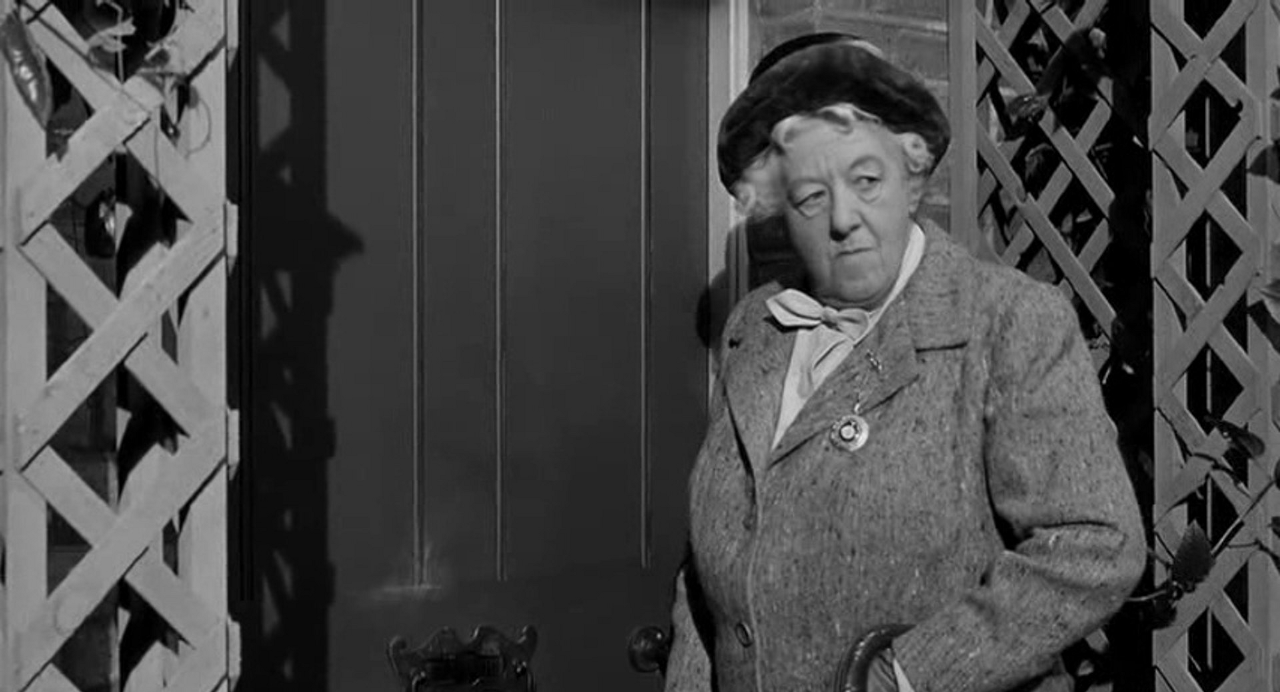Murder Most Foul
Rating
![]()
Director
George Pollock
Screenplay
David Pursall, Jack Seddon (Novel: Agatha Christie)
Length
1h 30m
Starring
Margaret Rutherford, Ron Moody, Charles Tingwell, Andrew Cruikshank, Megs Jenkins, Ralph Michael, James Bolam, Stringer Davis, Francesca Annis, Pauline Jameson, Annette Kerr, Alison Seebohm, Windsor Davies, Neil Stacey, Maurice Good, Stella Tanner, Dennis Price, Terry Scott
MPAA Rating
Unrated
Review
The third time isn’t always the charm as Margaret Rutherford returns as the inimitable Miss Marple in Murder Most Foul, a film that barely resembles anything Agatha Christie wrote.
Once again, one of Christie’s Hercule Poirot mysteries was hijacked by the production team of the Rutherford Marple films, but unlike the prior effort, this one largely dismantles the storyline of the original and embeds a wholly different criminal investigation. Mrs. McGinty’s Dead starts off similarly to Murder Most Foul as someone who is likely innocent is put on trial for another person’s death. That’s about where the commonalities end. Here, Marple torpedoes the case as the lone juror to proclaim his innocence.
From there, she decides to investigate further by insinuating herself into a travelling acting troupe where she can get close to the killer, whoever it is. As the film progresses, the standard murder mystery fare is put forth, including additional deaths, attempts on Marple’s life, and more. She jumps from suspect to suspect until she finally figures out who the culprit is and sets her trap.
Murder Most Foul was the dullest of the first three pictures (for American audiences, this film was released fourth). With its stark deviation from the source material, there’s no use lamenting the replacement of the Poirot character since there’s barely anything of that narrative left. Still, what screenwriters David Pursall and Jack Seddon manage to achieve is craft a story that’s a bit too deviated from the Christie style and instead more a product of its star’s magnetism than anything else.
Few in the cast stand out, a startling fact considering they are almost all portraying actors. While it does stick closely to the Marple persona as crafted by Rutherford, even her jocularity and approachability aren’t enough to rescue a dismal set of performances. Director George Pollock returns, but even his gentle hand can’t save the film. It’s a product of its own devising, wanting to stick too closely to what made the first films popular without genuinely understanding why. Rutherford was a part of that, but Christie’s inventiveness was far more important and that feels almost absent.
With Murder Most Foul, the pacing is off, the mystery isn’t terribly exciting, and Rutherford seems adrift in the proceedings and that’s even giving some leeway for her capabilities. It certainly wasn’t the kind of performance that a recently-minted Oscar winner should be giving. It didn’t help that a lot of her trademark humor was diminished and perhaps that is the reason her final film was so heavily laden with humor. Whether you can guess the culprit at the end or not, you’ll find this to be one of the least enjoyable of the productions.
Review Written
August 30, 2023



















Leave a Reply